Sustainability Mission Statement & Policy
Climate Context
The English National Opera is an internationally celebrated opera company based in London and built on the belief that opera is made for everyone. We strive to create new experiences with our productions that inspire, nurture creativity, and make a difference.
Climate change presents a threat to our natural environment and our livelihoods as a result. As global temperatures continue to rise, biodiversity is lost, and more waste is produced, experts warn that the window is shrinking for environmental action that will prevent the most catastrophic climate change. Global frameworks including the Paris Climate Agreement and the UN Sustainable Development Goals set targets for reducing greenhouse gas emissions, creating space for nature, and improving people’s wellbeing.
At the English National Opera, we recognise that we are in the decade for action on climate change and we strive to be a leader in sustainability in the performing arts. As we push forward on our sustainability journey, we aim to embed good environmental practice across our operations, programming, and learning in order to deliver on our commitment to respond to the climate and ecological emergency.
The ENO’s Values & The Environment
The ENO holds the following values as integral to our work and connected to our sustainability aspirations:
Creativity
We take a creative approach to sustainability and inspire important conversations and learning through art.
Trust
Our audiences and stakeholders can trust that we are committed to society’s priorities and will follow through on our environmental goals.
Video
Video
Togetherness
As all people are impacted by climate change, we strive to work inclusively with our diverse staff, audiences, and community to be a part of the climate solution.
Excellence
We want to be a sustainability leader in the performing arts sector, and we have faith in the capabilities of our staff to achieve our goals.
Our Sustainability Approach
The ENO will start to implement the Theatre Green Book using it as guidance for sustainable productions and has created steering groups centered around Buildings, Productions and Operations to lead on implementation. These groups are closely aligned with three key categories we have identified which encapsulate the focus of our work at the ENO. These are Place, Productions, and People:
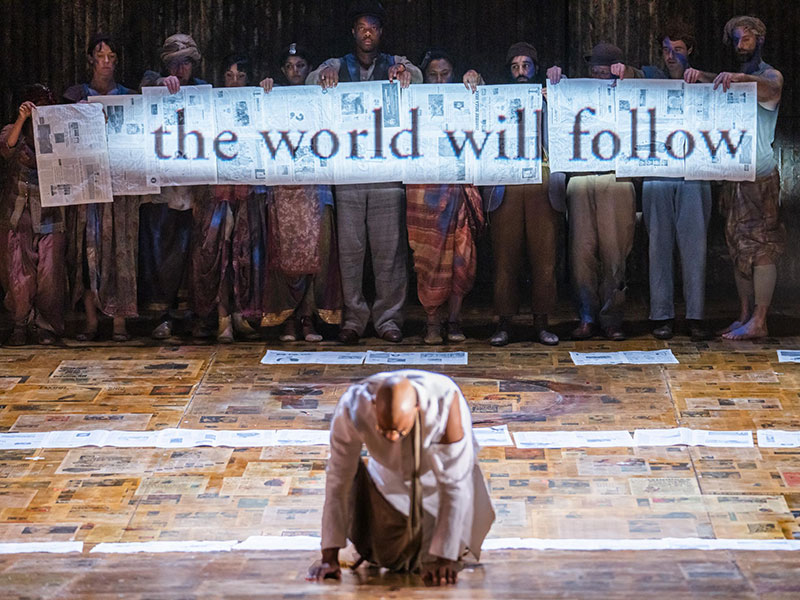
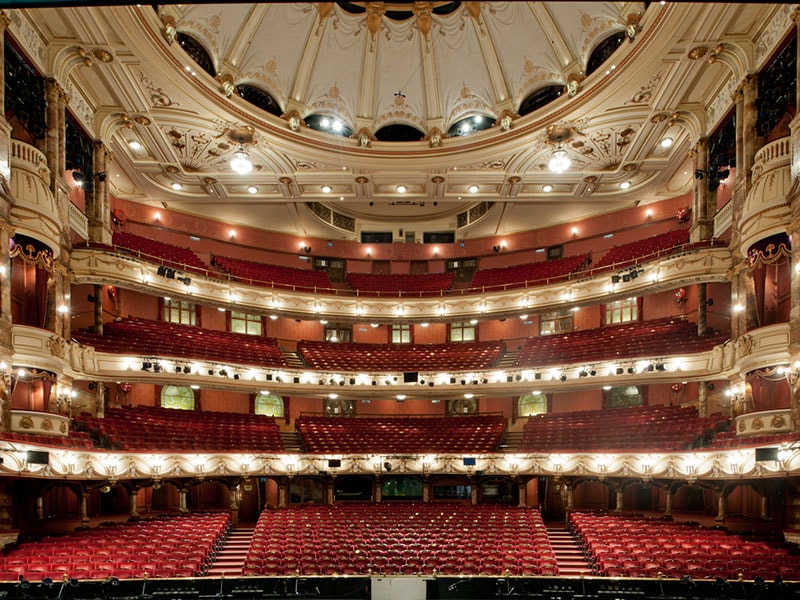
Place: Buildings & Community
The ENO is working to green our buildings which include our theatres, offices, and warehouses. Our work spans across the UK and with the international creative community, and as such we are committed to working with all our partners to create healthy and green spaces for people to thrive. As an art form, opera calls that we express ourselves with breath, and ensuring clean air for all to breath is vital for our artists and the communities we impact.
Productions: Performances & Learning
The ENO puts on a number of productions each year, and we recognise the environmental impact that comes with the building of sets and the running of shows. We are committed to aligning with the Theatre Green Book to think creatively about how to minimise our material footprint while maintaining excellence in production quality. We want to explore circularity in our design, and experiment with new materials in order to create an innovative template for sustainable set design in the performing arts.

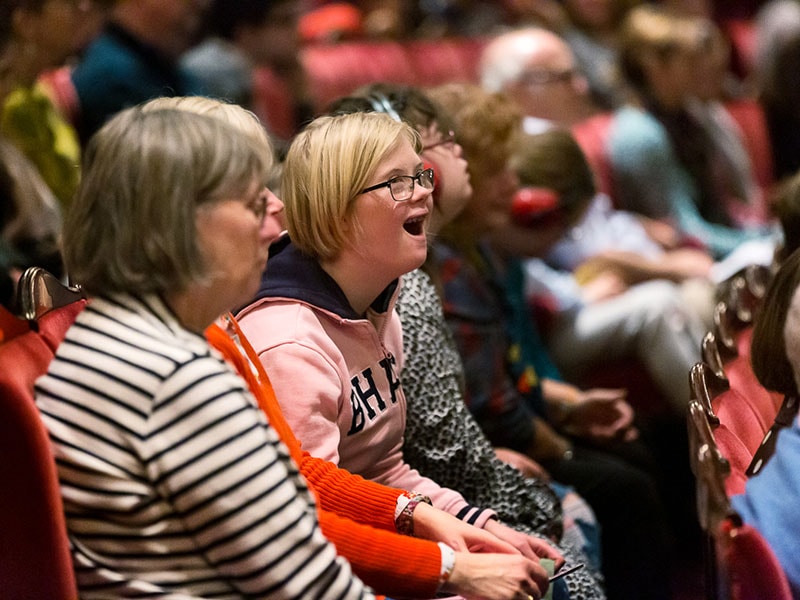
People: Staff, Audiences & Operations
The ENO makes opera for everyone, and we believe in the ability for art to connect people from all parts of society. Our staff and artists are visionaries with creative solutions to the climate crisis, and we seek to nurture this creativity while including audiences in the environmental conversation. We are committed to ensuring the wellbeing of our staff and supporting them in the challenging work of addressing our changing climate.
Through all of these categories, we continue to pursue innovation and creativity as we address our environmental goals.
ENO and The Sustainable Development Goals
The UN SDGs are a collection of 17 goals agreed upon by the international community which establish a roadmap towards a more sustainable future. While recognising the interconnectedness of these goals, the ENO has identified the following five which are most closely aligned with the opera’s sustainability vision. These goals will be revisited, assessed and reviewed regularly as the opera moves forward on its sustainability journey.
SDG 4: Quality Education
We seek to develop all staff carbon literacy training and scope links with learning programmes.
SDG 7: Affordable and Clean Energy
We will continue procurement of green energy and adopt good building energy management.
SDG 11: Sustainable Cities and Communities
We will do our part to ensure a more healthy and sustainable environment for our community in London and our greater region.
SDG 12: Responsible Consumption and Production
We aim to understand the environmental impacts of our productions and develop criteria for a green production model.
SDG 13: Climate Action
We will measure and report our carbon footprint and set a roadmap to achieve net zero by 2030.
SDG 17: Partnerships for the Goals
We will collaborate and partner with Arts Council England, our patrons, and the opera and wider arts community to further our sustainability aspirations.
Scope of Environmental Impacts

We recognise our responsibility to reduce our impacts, which we have identified as falling in the following categories:
- Energy
- Greenhouse gas emissions
- Waste
- Water
- Transport (staff, productions, audiences, etc.)
- Procurement (goods & services, catering, merchandise)
- Production (sets, lighting, costumes, etc.)
- Capital projects
Environmental Aims
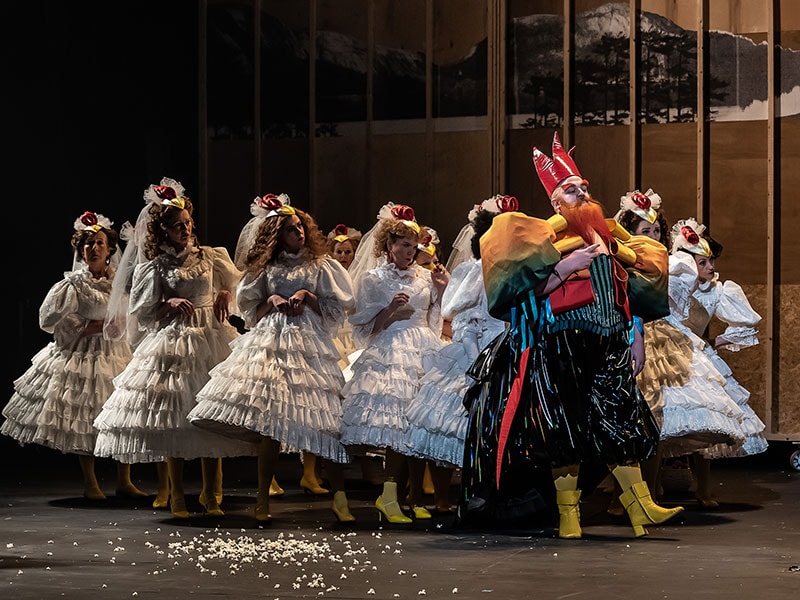
The following aims serve to guide the ENO as we push the boundaries on sustainability and embed best environmental practice in our work:
- Seize the distinct opportunity for opera to create compelling storytelling around people and our connection to the environment.
- Move to decarbonise our productions and buildings through creative transformation from existing models to innovative new ways of working.
- Amplify our sustainability impacts through activating strong partnerships and encouraging staff and audiences to join our environmental journey.
Environmental Objectives
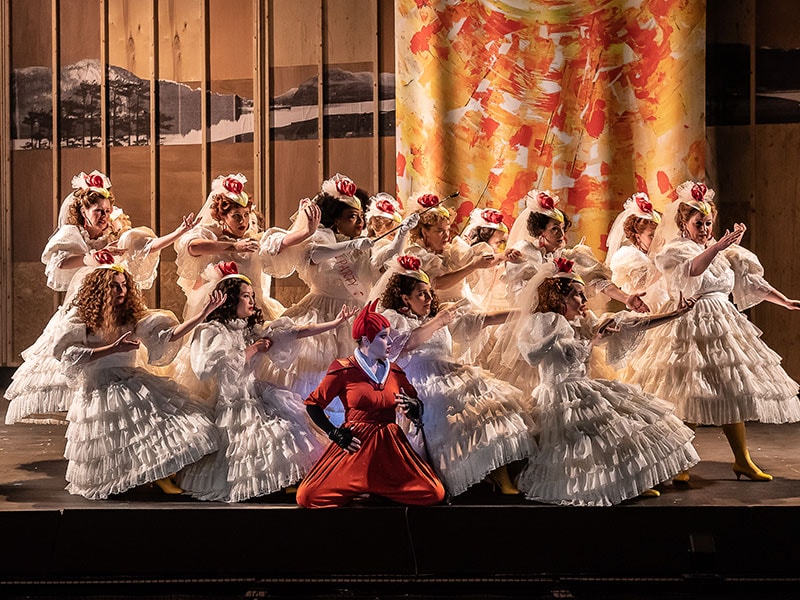
The following objectives map to our environmental aims and lay the foundation for our sustainability roadmap:
- Achieve net zero by 2030
- Aim to reduce energy related carbon emissions by 10% by 2023
- Eliminate single-use plastics by 2023
- Reduce general waste by 25% by 2023
- Measure and report key environmental impacts annually
- Meet and go beyond regulatory compliance
- Ensure sustainability is embedded in roles and responsibilities
- Develop green procurement processes and work with suppliers to reduce supply chain emissions
- Run regular environmental campaigns, training and wellbeing initiatives for staff and audiences
- Weave sustainability into our onstage storytelling and learning programmes
- Activate strong partnerships which push forward sustainability goals
Progress towards this policy, supported by our sustainability action plan will be reported regularly and the policy will be updated annually to reflect our current environmental progress and ambitions.
